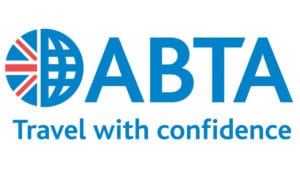
The summer holiday season is fast approaching and although planning a summer holiday is one of life’s great pleasures, it is, unfortunately, an area where scammers and fraudsters abound. Holiday fraud is an all-year-round problem but the increased numbers of people looking makes them more prevalent.

Image Credit:icemanphotos/Shutterstock
In 2018 Action Fraud reported that holidaymakers were swindled out of £7 million by fraudsters with the average amount lost being around £1380 per person (that’s around 5072 people who had their holiday plans ruined), and that’s only those who reported it, meaning the actual number will be much higher. Losing any amount of money to scammers is unpleasant but the emotional impact this can have on all concerned is immense. Fortunately, with a little bit of care and research, the vast majority of these scams can be avoided and the following tips will hopefully help you avoid becoming a 2019 statistic.
Most targeted areas.
In 2018 53% of the crimes reported to action fraud related to the sale of airline tickets making them the highest risk area. Also targeted frequently where short-term lodging deals and online rental agreements. Thus these areas are ones which need extra scrutiny. Although many of the frauds committed looked convincing there are things which can help you filter them out.

Air travel is one of the commonest areas targeted by holiday fraudsters
Image Georgejmclittle/Shutterstock
Check the website address.
Many of us now book our holidays on the Internet, and although this is a fantastic way of researching deals it can lead to problems. Cloning the website of a reputable travel firm is easier than you think, however, what is more difficult is to duplicate the web address. Most online travel firms will have a domain name ending with .com or a more country-specific such as.co.uk. However, with the plethora of new domain suffixes, it has never been easier to get a name matching or extremely close to that of a reputable firm. Although the major search engines are unlikely to index these bogus sites online advertising, social media posts and email links can point to them and often you won’t see the true domain name until you have landed at the site. If you do land on a suspicious site with an unusual suffix such as .holiday then try typing in the domain name with .com and see if it takes you to a different site. Also watch out for the spelling as another trick is to miss out or transpose a letter in the name of a popular site, as many people will not notice for example Thompsons as opposed to Tompsons. Also, watch out for site security if paying for anything. Ideally, it should be using encryption and the address bar should show https: and typically a small padlock symbol on the left-hand side.

Sites requesting money should be https:
Vlad Kochelaevskiy/Shutterstock
Check for trade body membership.

ABTA™ Logo
If you are relatively confident that their website you are on is legit, check whether it is a member of a recognised trade body such as ABTA, their logo can be forged so doublecheck by verifying the membership at ABTA’s website.
Check for reviews.
It’s always worth doing a quick web search for reviews on the company you are planning to book your holiday with. Even if they are a legitimate business who are accredited to a trade body, this doesn’t mean they are good to deal with. Poor Customer service or negligent administration although not as bad as being scammed can still cause problems. If they are fraudsters and have passed the first two screenings, then this should throw up any problems.
Watch out for Too good to be true deals.
In the excitement of getting what looks like a bargain basement dream holiday, it is easy to allow your judgement to be clouded. This scam usually involves you being contacted out of the blue by a travel agent or firm never dealt with before offering last-minute deals at very low prices. Even if they send pictures of the accommodation or hotel, remember these are easy to mock-up or steal from other legitimate sites.
There are some genuine firms out there offering this type of deal, however, do not let any time limits or pressure prevent you from carrying out the steps above before you part with any cash. Better to miss a bargain than potentially miss your holiday entirely. These scams usually occur via out of the blue sales calls, unsolicited emails or texts, offering time-limited offers or cancellation bargains for which you must pay an instant deposit.
Beware of direct bank transfer requests.

Pay By Credit Card if Possible
Image: A. and I. Kruk/Shutterstock
Although there are sometimes genuine reasons to pay by bank transfer this is also the most common method used by scammers as are money transfer services such as MoneyWise or Western Union, both of which are legitimate and useful services but neither offers any protection against fraud. If possible pay by credit card as this potentially offers some protection under Section 75 of the Consumer Credit Act if something goes wrong. Most small businesses will have a merchant account enabling them to take credit cards, and practically anyone can use an online payment processor such as PayPal to accept payments. If using the latter ensure that any payments sent are via goods and services which offers some protection unless you are 100% confident in the person you’re sending the payment to.
Action Fraud
If you follow the above steps you should be able to filter out a high percentage of any potential fraudulent offering, however, nothing is completely foolproof in life, so if you are unfortunate enough to get caught out then although it is embarrassing, ensure that you report it to Action Fraud.